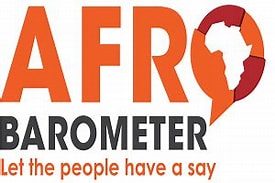By Mohamed A. Warisay
The Afrobarometer report’s findings on Sierra Leone are particularly concerning, given the country’s recent history of political instability and electoral disputes. The report’s revelation that a majority of Sierra Leoneans (53%) have trust in the country’s electoral process and institutions and more than 80% of Sierra Leoneans believe the last elections were free and fair, is not just surprising, but shameful, given the controversy surrounding the 2023 elections. Also, the report’s failure to provide a more nuanced and context-specific analysis of the country’s political landscape is disappointing, to say the least.
For instance, the report could have explored the role of independent electoral observers, political patronage, ethnic divisions, and regional biases displayed by senior electoral staff in shaping public perceptions of the electoral process.
Furthermore, the report’s emphasis on citizens being satisfied with the 2023 electoral process underscores the need for more inclusive and participatory approaches to Afrobarometer’s work if citizens are to take it seriously. If the Afrobarometer report’s findings were anything related to the facts, the 2023 elections would not have been under intense international scrutiny, criticism, and global condemnations.
Ultimately, the Afrobarometer report’s findings on Sierra Leone serve as a reminder of the need for sustained efforts to address the country’s independent civil society deficits and sharp regional divide. It is no secret that the source of the Afrobarometer report in Sierra Leone has been showing specific biases towards the opposition throughout the 2023 elections. No wonder the once trusted civil society representatives have lost face with donors and members of the international community.
While the report provides some useful insights into public perceptions of the electoral process, its limitations highlight the need for more contextualized and nuanced analysis of the country’s political landscape. As Sierra Leone navigates the complex process of electoral reform, it is essential that policymakers and practitioners prioritize a more inclusive, participatory, and context-specific approach to addressing the country’s democratic challenges.
Finally, it is quintessential that citizens are assured, despite the Afrobarometer report, that the Tripartite Committee would do well to unearth the electoral lapses and prioritize a more comprehensive and citizen-centered approach to addressing the country’s electoral challenges.


